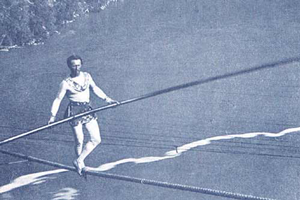International Aid Worker Appreciation Day
 A big part of what we do on this blog is criticize bad ideas in aid. But in our zeal to get this message across, sometimes other, important messages get lost.
Today, we devote the blog to expressing our admiration and respect for aid workers. Aid work can be a tough, grueling, frustrating, even heart-breaking job.
A big part of what we do on this blog is criticize bad ideas in aid. But in our zeal to get this message across, sometimes other, important messages get lost.
Today, we devote the blog to expressing our admiration and respect for aid workers. Aid work can be a tough, grueling, frustrating, even heart-breaking job.
Aid work promises the adventure of foreign travel and the gratification of working for the good of others, but also the monotony of data-crunching and report-writing, the fear of losing funding, and the frustration of fighting bureaucracy.
It demands time spent away from home and loved ones, and is notoriously tough on family life.
Parodies aside, aid work is not all flying business class to stay in luxury hotels. The pace of travel can be punishing, the accommodations uncomfortable, the food unfamiliar. And sometimes conditions are dangerous. Aid workers by profession take risks that range from just inconvenient to lethal: jet lag, homesickness, food poisoning, petty crime, disease, terrorism, war.
Of course these hardships are taken on voluntarily, and small compared to those of the people aid workers are there to help. But many aid workers are highly-educated and come from privileged societies, where they could have easily found jobs that pay more and require less dedication and hardship.
Obviously you will notice that we planned this post months in advance to coincide exactly with the 151st anniversary of the historic day when French acrobat Jean-Francois Gravelet (pictured above) became the first person to cross Niagara Falls balancing on a tightrope. Likewise aid work, whether in the field or at HQ, requires balancing along a thin and possibly nonexistent line reconciling the irreconciliable demands of your bosses, your evaluators, your funders, your critics, your local government counterparts, your clients, your family, and your own ideals.
Today, we recognize and celebrate aid workers’ commitment and sacrifice.
 From Aid to Equality
From Aid to Equality
